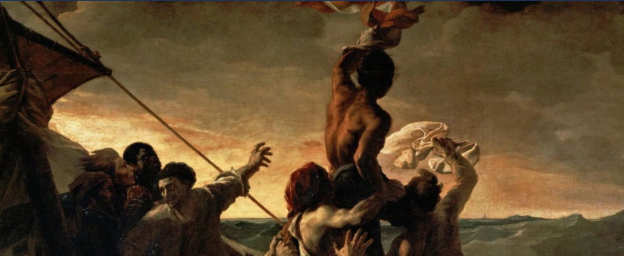Summary
There is a terrible lie told in parts of modern Christianity – the idea that trusting in Christ will solve all our problems and that we will face no opposition for our beliefs. The reality is quite different, and many of the psalms express the reality of struggle, opposition, and oppression.
In Psalm 3, the first psalm explicitly attributed to King David, we see David cry out to God for help as he flees the rebellion of his son, Absalom (2 Samuel 15-18). David cries out to God, acknowledges his confidence in God, and expresses hope in his deliverance. These words are of equal comfort to us as well in days of need.
Our passage explained
v1-2
Psalm 3 begins in verses 1 and 2 with King David crying out to God. “O LORD, how many are my foes! Many are rising against me; many are saying of my soul, ‘There is no salvation for him in God.’”
This cry of anguish occurred because many of his people turned to his rebellious son, Absalom, who was attempting to seize power. David cries to his covenantal God (by calling on God’s covenantal name, printed in our Bible as LORD), announcing his despair over his abandonment by many of the people of Israel.
The cry of anguish not only expresses despair over many (repeated three times) who have deserted his cause, but also the words they express. David mourns that they believe God will not save him: that the God who anointed and established him in the kingship, and whom he has faithfully served, will not be faithful to David in his hour of need.
v3-4
Despite the words expressed by his internal enemies, David in verses 3 to 4 still acknowledges his confidence in God. While others seek him harm, “you, O LORD, are a shield about me, my glory, and the lifter of my head” (v.3). Despite the opposition he faces and his flight from Jerusalem, he sees his covenant-keeping God as his protector and the one who would lift him up to his rightful place as king.
David’s confidence came from his knowledge of God’s love. “I cried aloud to the LORD, and he answered me from his holy hill” (v.4). David knows that in other times he has called upon God as his shield and helper, and has been answered. So too this time, God will answer his cries from his earthly abode, the Temple in Jerusalem.
v5-8
The confidence which David has in God leads him to express hope in his eventual deliverance from his enemies (vv.5-8). Absalom may have many followers, but David has God on his side. As a result, “I lay down and slept; I woke again, for the LORD sustained me” (v.5) and kept him from harm as he slept. David has no fear of the many thousands who have left his side to rally behind Absalom’s banner (v.6).
If David is to be delivered, then God is the one who shall defeat his enemies. Therefore, he calls on God to “arise” and “Save me, O my God!” (v.7) His call to God to arise expresses confidence that God’s power to deliver is about to be displayed. The victory of God for David will be complete, “for you strike all my enemies on the cheek; you break the teeth of the wicked”. God does not grind his enemies to stalemate, but defeats and removes their power to oppose.
Psalm 3 ends on a climax as David contradicts the many who oppose him, expressing his confidence in God to save. “Salvation belongs to the LORD; your blessing be on your people!” (v.8). David prays that not only will the salvation (or deliverance) he expects be just for him, but for all God’s people. David asks God to bless all those who are God’s people, not just himself.
Our passage applied
Like David, we can pray, recite, or sing this psalm taking the same comfort from God’s faithfulness. God is unchanging, and his faithfulness to his people does not change. For all who trust in God, he promises to deliver.
In times of trial, when the church is attacked or we are troubled for our beliefs, even by those who falsely call themselves Christians, this psalm offers the same words of comfort.
We can be confident in God’s love for us, his people, and rest in him even though innumerable foes may oppose. God will ultimately vindicate and deliver us, even though we go through troubles in this life. Whether this deliverance is expressed in victory now or final vindication on the Last Day is a matter of God’s wise decree.
But most of all, we can proclaim these words because God has delivered us from the Devil, from sin, and from death through Jesus (whose name comes from the Hebrew word for deliverance). This deliverance and complete victory for us is not just for one or two alone, but for all God’s people.
So in times of difficulty, we can join David and call out in hope: ‘Save Us, O our God!
Resources
Questions? Please contact us. Inspired? Come and worship with us on Sundays.



